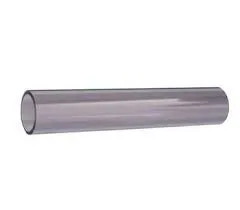Nov . 11, 2024 01:50 Back to list
Choosing the Right 1% PVC Irrigation Pipe for Efficient Water Management
The Advantages of 1% PVC Irrigation Pipe in Modern Agriculture
In the ever-evolving world of agriculture, efficient water management is crucial for maximizing crop yields and minimizing environmental impact. One emerging solution that has gained traction among farmers and agricultural engineers alike is the use of 1% PVC irrigation pipes. These pipes offer a variety of benefits that can significantly enhance irrigation practices, improve crop health, and contribute to sustainable farming methods.
What is 1% PVC Irrigation Pipe?
1% PVC irrigation pipes are specialized plumbing materials made primarily from polyvinyl chloride (PVC). The term 1% indicates the percentage of specific additives mixed with the base PVC material to enhance its durability and flexibility. These pipes are typically lightweight, resistant to corrosion, and can withstand high pressure, making them an ideal choice for various irrigation systems, including drip and sprinkler applications.
Key Benefits of 1% PVC Irrigation Pipes
1. Durability and Longevity One of the standout features of 1% PVC irrigation pipes is their resilience. Unlike traditional materials such as metal or concrete, PVC is resistant to rust, corrosion, and degradation from soil chemicals. This means that farmers can expect their irrigation systems to last much longer, reducing replacement costs and maintenance efforts over time.
2. Cost-Effectiveness The initial investment in PVC pipes is often lower than other materials, making them financially appealing for farmers. In addition, their longevity translates to savings on future replacements. Moreover, with improved water efficiency, farmers can optimize their water usage, leading to reduced water costs and better resource management.
1 pvc irrigation pipe

3. Lightweight and Easy to Install The lightweight nature of 1% PVC pipes makes them easier to transport and install. This characteristic can dramatically reduce labor costs and installation time, allowing for quicker implementation of irrigation systems. Farmers can adapt their irrigation infrastructure with minimal disruption to their operations, ensuring that crops receive vital water without delay.
4. Flexibility in Design 1% PVC irrigation pipes can be easily shaped and connected to create custom irrigation layouts. Whether farmers are designing a simple drip system or a complex network of sprinkler heads, the versatility of PVC pipes allows for innovative designs that can cater to diverse field conditions and crop requirements.
5. Efficient Water Delivery Effective irrigation is not just about delivering water; it’s about delivering it precisely where and when it’s needed. PVC irrigation pipes facilitate efficient water distribution, reducing wastage and ensuring that water reaches the root zone of plants. This targeted application helps to promote healthier plant growth and can lead to improved yields.
6. Environmental Sustainability In a time when sustainable practices are more important than ever, 1% PVC irrigation pipes can offer eco-friendly solutions. Their durability means fewer resources are needed for replacements, and since they are often made from recyclable materials, they contribute to a circular economy. Furthermore, efficient water delivery supports responsible water usage, helping to conserve this vital resource.
Conclusion
The use of 1% PVC irrigation pipes represents a significant advancement in agricultural practices. Their durability, cost-effectiveness, lightweight design, flexibility, and efficient water delivery capabilities provide farmers with an excellent tool for improving irrigation systems. As agriculture faces the challenges of climate change, water scarcity, and the need for sustainable practices, solutions like 1% PVC pipes will become increasingly important.
Farmers who adopt these innovative materials in their irrigation systems not only enhance their productivity and profitability but also contribute to a more sustainable agricultural future. By optimizing water resources and improving crop health, 1% PVC irrigation pipes exemplify the intersection of technology and nature in creating effective farming solutions. Forward-thinking agricultural professionals must consider integrating these pipes into their operations to stay ahead in the competitive landscape of modern agriculture.
-
High-Quality PPR Pipes and Fittings Durable ERA PPR & PVC PPR Solutions
NewsJul.08,2025
-
Black HDPE Cutting Board - Durable, Non-Porous & Food Safe HDPE Plastic Cutting Board
NewsJul.08,2025
-
High-Quality CPVC Panel Durable HDPE & PVC Panels Supplier
NewsJul.08,2025
-
Double PE Welding Rod Supplier - High Strength, Durable & Versatile Welding Solutions
NewsJul.07,2025
-
High-Quality PVC-O Pipe Supplier Durable 75mm PVC Pipe & Connections Leading PVC Pipe Company
NewsJul.07,2025
-
HDPE Drainage Pipe Supplier – Durable & Corrosion-Resistant Solutions
NewsJul.06,2025

